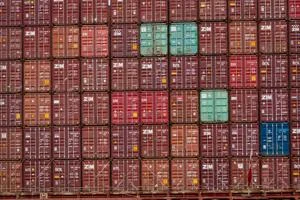President Donald Trump gave himself more time to reach trade deals with foreign nations, but his efforts to quickly overhaul global trade through tariffs still face challenges at home and abroad.
Last week, Trump extended his self-imposed deadline to reach trade deals until Aug. 1, marking the president’s second extension. Trump first announced reciprocal tariffs on April 2, but days later paused those higher taxes on imports for 90 days. Although the latest extension gives Trump more time, it doesn’t simplify the task.
After Trump’s most recent tariff extension, the president threatened several U.S. trading partners with even higher tariffs and obstacles remain for trade deals with key allies, including Canada, Mexico and the European Union, a 27-nation bloc of countries that has frustrated the administration.
Trump’s tough talk on trade comes as the largest U.S. business lobby joined an ongoing legal challenge over the reciprocal tariffs.
The U.S. Chamber of Commerce, the world’s largest business federation, filed a friend-of-the-court brief alongside the Consumer Technology Association. The brief warned the federal appeals court that stakes were high in the legal battle over tariffs under the International Emergency Economic Powers Act.
“The economic and political consequences of ratifying the President’s broad interpretation of IEEPA are profound and far-reaching, especially for American businesses,” the attorneys wrote. “If the President’s IEEPA tariffs remain in force, American businesses – large and small – will be irreparably harmed.”
Attorneys for the business group noted that the 1977 IEEPA doesn’t mention tariffs.
“The statute does not even mention ‘tariffs’ or any other type of ‘duty.’ Nor does IEEPA silently empower the president to unilaterally impose tariffs of unlimited size, scope, and duration,” they wrote.
The Chamber of Commerce said if the court accepts the administration’s arguments, it could lead to problems, regardless of who is in the White House.
“This threat transcends particular administrations. If the current administration is permitted to invoke IEEPA to impose unlimited tariffs to deal with the asserted ‘national emergencies’ based on trade deficits and drug trafficking, then future administrations will have similarly expansive authority to impose worldwide tariffs based on their own objectives,” attorneys for the business group wrote. “It is not hard to imagine a future administration declaring its own political priorities constitute a ‘national emergency,’ and then invoking IEEPA to impose unlimited tariffs in pursuit of this agenda.”
The Trump administration has argued it has authority under IEEPA to issue tariffs. Some groups have also pointed to other laws that Trump could use to issue tariffs if the appeals court finds the IEEPA doesn’t give the president such authority.
Trump’s attorneys have vowed to appeal the case to the Supreme Court if the federal appeals court doesn’t rule in their favor.
Last month, an appeals court ruled Trump’s “Liberation Day” tariffs could remain in place while a legal challenge over his authority to impose import taxes continues. That means Trump can continue collecting the taxes while the legal challenge moves ahead.
Economists, businesses and some publicly traded companies have warned that tariffs could raise prices on a wide range of consumer products for Americans.
Trump has said he wants to use tariffs to restore manufacturing jobs lost to lower-wage countries in decades past, shift the tax burden away from U.S. families, and pay down the national debt.
A tariff is a tax on imported goods paid by the person or company that imports the goods. The importer can absorb the cost of the tariffs or try to pass the cost on to consumers through higher prices.






